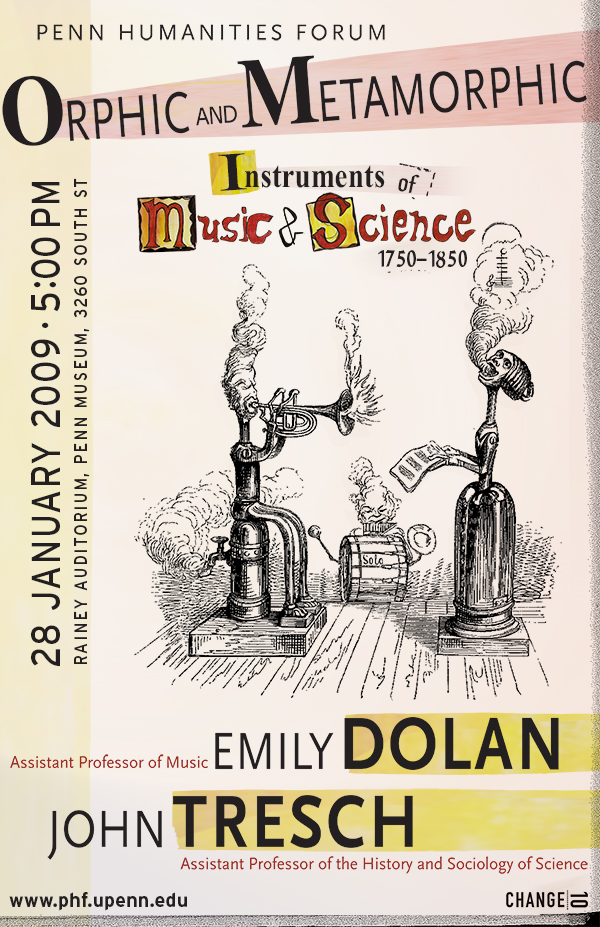In the period around the French Revolution, the fields of music and science overlapped in surprising ways. Theories of vibration inspired new conceptions of the power of music, and the orchestra provided a metaphor for nature's unity. Ideas about scientific and musical instruments were closely connected. Both were thought to attune individuals to the rhythms and harmonies of nature, to access higher realities, and to function as civilizing forces. This was a time of profound change for instruments, one that altered the ways we hear and know.
Showcasing a number of musical and experimental samples, Professors Dolan and Tresch offer a new perspective on the technological, aesthetic, and social transformations at the dawn of industrial modernity.
Emily Dolan took her doctorate in musicology at Cornell. A specialist in 18th- and early 19th-century music and aesthetics, her work draws upon now forgotten instruments, using them as gateways into the sound world of their time. Her article, “The Origins of the Orchestra Machine,” examines the ways in which a new fascination with orchestral sonority and power manifested in many instruments that were invented during the late 18th century. She is currently working on a monograph on ETA Hoffmann’s Die Automate as a work of musical criticism, as well as an extended project on the musical aesthetics of Johann Gottfried Herder. Prof. Dolan also works on popular music, in particular focusing on notions of authenticity and kitsch.
John Tresch originally trained as an anthropologist before taking his PhD in History and Philosophy of Science at Cambridge University where he worked on the history and philosophy of physics, the social sciences, and science and literature. His research focuses on the cultural history of science and technology in Europe (especially France) and the USA from 1750 to the present. Among his current projects is a book entitled Mechanical Romanticism: Technologies of Transformation in the French Industrial Revolution, 1815-1851, which considers how new machines transformed conceptions of self, society, and nature at the dawn of industrial modernity. An ancien élève of the Ecole Normale Supérieure, Paris (1996-2000), Prof. Tresch has held fellowships at Columbia and Northwestern Universities and the University of Chicago.
Assistant Professor of Music, Penn



